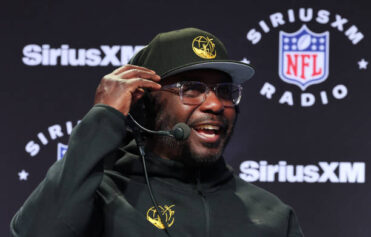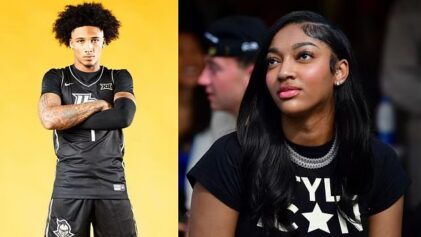Last Spring, The Shadow League published “Rocky Flop”, an extensive look at how the University of Tennessee discarded some of it’s top female track and field recruits with callous disregard. Last night, we learned that the university’s problems with how it treats its female students overall, specifically those who stepped forward to admit that they had been raped by members of the men’s football and basketball teams, were much more widespread and problematic.
In a lengthy story in The Tennessean, writers Anita Wadhwani and Nate Rau break down the sweeping allegations that could doom the current leadership regime- from the president and athletic director and all the way down to the inner workings of the university’s student judicial process and its overall culture of athletics.
The lawsuit seeks injunctive relief requiring UT to address its violations of Title IX law, including: “instituting, with the assistance of outside experts, and enforcing a comprehensive sexual harassment policy, including procedures for effective reporting of sexual harassment incidents, an effective and immediate crisis response, and an expanded victim assistance and protection program, adopting a real zero tolerance policy under which there will be expedited proceedings and punishment proportional to the offense for violation of sexual harassment policies.”
Excerpts from the story that was filed by The Tennessean last night have been posted below. To access the entire disturbing report, you can read it here.
***
Six women filed a federal lawsuit on Tuesday claiming the University of Tennessee has created a student culture that enables sexual assaults by student-athletes, especially football players, and then uses an unusual, legalistic adjudication process that is biased against victims who step forward.
The lawsuit, filed by plaintiffs identified only as “Jane Does,” accuses five Tennessee athletes of sexual assault. They are former basketball player Yemi Makanjuola, former football players A.J. Johnson, Michael Williams and Riyahd Jones and a current football player named as a “John Doe.”
The lawsuit also details an incident involving a female student who says she was sexually assaulted by a nonathlete, who was named a John Doe. The alleged assault took place after attending a football team party at Vol Hall, a campus dorm where she was served drinks by former UT player Treyvon Paulk, the lawsuit says.
In making its case that the university enabled an environment of bad behavior and used a disciplinary system that favored the players, the lawsuit cited more than a dozen incidents involving football players that included underage drinking, sexual harassment, assault, armed robbery and sexual assaults that did not involve the Jane Doe plaintiffs. Some of the incidents cited have previously never been reported.
The plaintiffs say that UT violated the Title IX laws, which protect students from gender discrimination in federally funded education programs. UT created a hostile sexual environment for female students by showing deliberate indifference and a clearly unreasonable response after a sexual assault that causes a student to endure additional harassment,” according to the lawsuit.
The lawsuit said blame for the hostile policies should be placed at the very top of the UT administration.
UT administration (Chancellor Jimmy Cheek), athletic department (Vice Chancellor and Athletics Director) Dave Hart and football coach (Butch Jones) were personally aware (as appropriate persons under Title IX) and had actual notice of previous sexual assaults and rapes by football players, yet acted with deliberate indifference to the serious risks of sexual assaults and failed to take corrective actions, the plaintiffs said in their lawsuit.
The plaintiffs say that UTs administrative hearing process, which is utilized by public universities across the state, is unfair because it provides students accused of sexual assault the right to attorneys and to confront their accusers through cross-examination and an evidentiary hearing in front of an administrative law judge. The administrative law judge who hears the case is appointed by Cheek, the lawsuit says.
The university “delayed the investigation process until the athlete perpetrators transferred to another school or graduated without sanction or discipline,” the lawsuit said. Johnson was suspended at the end of his senior season but was able to participate in the UT commencement ceremony.
Responding through legal counsel Bill Ramsey, the university released a detailed statement that said:
“Like the many other college campuses facing the challenges of sexual assault, the University of Tennessee, Knoxville, has devoted significant time and energy to provide a safe environment for our students, to educate and raise awareness about sexual assault, and to encourage students to come forward and report sexual assault. When the University receives a report of sexual assault, we offer care and support to the person who came forward and work to investigate and resolve the matter in a timely, thorough, and equitable manner. When warranted, the University takes disciplinary action but will not do so in a manner that violates state law or the constitutional due process rights of our students.
“In the situations identified in the lawsuit filed today; the University acted lawfully and in good faith, and we expect a court to agree. Any assertion that we do not take sexual assault seriously enough is simply not true. To claim that we have allowed a culture to exist contrary to our institutional commitment to providing a safe environment for our students or that we do not support those who report sexual assault is just false. The University will provide a detailed response to the lawsuit and looks forward to doing so at the appropriate time, and in the proper manner.”
An unusual hearing process
Tennessee is the only state in the country to use such an administrative hearing process, according to the lawsuit. The lawsuit claims that UT student-athletes frequently hired prominent Knoxville attorney Don Bosch to represent them in their administrative hearings.
Athletes knew in advance that UT would: support them even after a complaint of sexual assault; arrange for top quality legal representation; and then direct them to the (Tennessee Uniform Administrative Procedures Act) hearing procedure that denies victims the right to a hearing and to the same equal procedural, hearing, and process rights as given to perpetrators of rape and sexual assault, the plaintiffs said in their lawsuit.
*****************
The alleged assaults took place on and off campus and involved women who ranged from a freshman who had been on campus just three weeks to a varsity team athlete. At least three of the accusers dropped out of school within weeks or months after they reported their attacks to university officials.
Three of the student-athletes named in the lawsuit Johnson and Makanjuola were publicly praised by UT coaches and administrators while they remained on their teams, graduated or transferred, even as those officials were aware that sexual assault allegations had been made against the players.
*************
‘Undue influence’ alleged
In March, the ongoing Tennessean investigation revealed that a former vice chancellor at the university had raised concerns in the spring of 2013 that athletics department director Hart exerted undue influence over student-athlete discipline. At the time, Vice Chancellor Tim Rogers, who oversaw the office that investigated allegations of student misconduct and sexual assaults, said the UT athletics department placed students and institutional integrity in “peril.” The concerns were outlined in a memo written by Rogers and obtained by The Tennessean.
Rogers, a 38-year veteran of the university, authored a memo detailing his concerns about pressure from athletics department administrators on how athletes should be disciplined for misconduct ranging from minor infractions to sexual assaults. The document said the athletics department’s “undue influence” into allegations of student-athlete misconduct had been “enabled by way of the Chancellor’s directives and interference.” Cheek at the time refuted those allegations.
Rogers took his concerns directly to UT President Joe DiPietro and Cheek in the spring of 2013. DiPietro told The Tennessean that he never investigated those claims but spoke with Cheek and Hart. DiPietro said he was “confident in the statements” from Cheek and Hart that no such influence existed. Rogers abruptly retired in June 2013 shortly after his conversation with DiPietro, saying at the time it was due to an “intolerable situation.”
The lawsuit claims Rogers’ memo detailed a “hostile sexual environment, rape culture and an increased risk of placing athletes with freshmen women at Vol Hall,” the site of some of the incidents.



